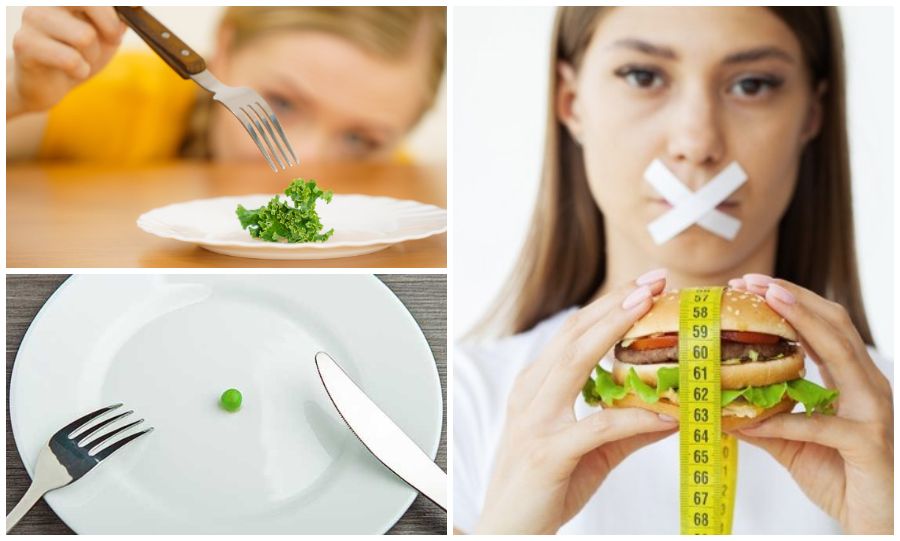Various studies have established that most morbidly obese people end up in the situation that they are because of emotional eating. Emotional eating is a situation where one eats to feel good and pleasant, to cope up with trauma, to relieve stress, rather than to satisfy hunger. The food that emotional eaters choose are usually high-fat, high sugar, calorie-rich food full of transfat and other toxic ingredients, extremely unhealthy for the human body. When someone depends on food to cope with certain situations or to relieve stress, preoccupation with food takes over that person’s life and before he/she realizes, they would end being obese with a high risk for developing type 2 diabetes and heart disease. In the current times, when the stress levels are high, more and more people are resorting to unhealthy food habits and binge eating to find comfort. That’s why, we have decided to come up with this post and tips to deal with emotional eating that would prevent you from piling on the weight.



Why People Resort to Emotional Eating?
We all tend to indulge in binge eating – whether it is an extra slice of cake or a few extra French fries, but it’s just once in a while. However, when you have an eating disorder such as as stress eating, one eats more than what is required, often to overcome stress, anxiety, loneliness, trauma, etc., and experiences severe guilt over the same once the binging is done.

Food with high sugar, sodium, transfat content have a direct impact on the brain. When you eat such food, your brain rewards you by releasing “feel-good chemicals” such as endorphins and dopamine. Such feel-good chemicals make us happy and elevate our mood. Such food items also cause sharp insulin spikes which give us instant energy but the drop in insulin spike is just as steep, causing fatigue and lack of energy. Eating processed and junk food releases a huge amount of dopamine and other feel-good chemicals compared to healthy food. The brain then causes more cravings for such food and it can lead to food addiction. When one indulges in such food, the “reward center” in the brain gets activated and releases dopamine and other feel-good chemicals and this cycle goes on and on, and one is unable to control these cravings. In short, people resort to emotional eating to feel better, relieve stress, and cope up with traumatic situations.
Symptoms of Emotional Eating:
- You eat when you are under stress, not really when you are hungry.
- You are unable to portion control.
- Gulping down food instead of chewing it.
- Feeling guilty right after eating.
- Food is your “only” option to calm down and get out of hard situations.
- Unable to control binge eating.
Common Comfort Foods that Trigger Emotional Eating:
Ice cream
Pizza
Sugary drinks
Sweets
Junk food
Chocolate
French fries
Cookies
Candies
Cakes
Are you an Emotional Eater?
Let’s find out whether you are emotional eater by answering these questions:
- Does sugary food helps you to calm down and relieve stress?
- Do you tend to eat when you are feeling down?
- Do you eat till the time you are actually feeling sick?
- Are you unable to control frequent cravings?
- Do you eat frequently because you are lonely?
- Do you eat non-stop when someone humiliates you?
- Do you binge eat when something upsetting has happened?
- You do not stop eating even though you are completely full?
14 Tips to Control Emotional Eating/Stress Eating:
1. Identify the food that gives you comfort and search for healthy options for those. For example, instead of instant noodles, you can make noodles out of zucchini, instead of mashed potatoes, you could try mashed sweet potatoes or cauliflower. Likewise, potato chips can be replaced with khakra. In this post, we have a list of 50 Healthy Food Swaps That Everyone Should Absolutely Try.
2. Meal prep for the whole week – including snacks and stick to them. That’s why Rati Beauty diet program help you out with what to eat and at what timings for the entire week. What’s wonderful, you get to drop weight and get healthy through this process.
3. Chew slowly, enjoy each bite. You would be surprised how you would not be able to finish all the food on your plate. When you eat too fast, your brain doesn’t get the signal to stop once you are full. Gulping down food would lead to consume food more than necessary. Interestingly, the brain takes about 20 minutes to register that you have eaten food and by slowing down, you can actually reach satiation point during the eating process itself and stop yourself from piling on extra pounds.
4. Drink a glass water at least 15 minutes before you eat food. Most of the time you are just thirsty and not really hungry, and also, water helps you to reach satiation quickly.
5. Most emotional eaters resort to eating because they are stressed out and anxious, practice meditation and pranayama. Even basic yogasanas such as Uttanasana, Garudasana, Sukhasana, Sasangasana help to relieve stress and they calm down your mind.
6. Write down your thoughts in a journal or a diary. Write letters to yourself talking all your thoughts in detail. Such a process would take off a lot of emotional burden and will help you move forward without clutching on to negative emotions.
7. Find new hobbies to divert your attention and energy. It would be a good idea to find hobbies that interest you, such as painting, reading, dancing – anything that boosts your mood.
8. Make an effort to connect with people who are in a similar situation and are willing to help. Rati Beauty has an amazing community full of positive people who help each other to lose weight with healthy eating.
9. Do not crash diet, eat healthy, do not starve yourself. Crash dieting often deprives the body of any kind of food and the preoccupation with food will be stronger than ever, pushing you to stress eat.
10. Learn how to portion control. Here’s how you can do it. Portion control is an essential aspect, not only to lose weight but also to maintain optimum health and to prevent diseases such as type 2 diabetes, stroke, and heart disease. Eating disorders such as anorexia, bulimia, and binge eating result from a loss of portion control.
11. Seek psychological help. Don’t shy away from seeking help because emotional eating or stress eating would not solve any of your emotional problems. Talk to a counsellor or psychologist about issues affecting you and get appropriate guidance.
12. Get enough sleep. Lack of sleep is a root cause of many health problems and stress is just one of them. Get at least 8 hours of sleep every night and daytime napping is not included in this time frame.
13. Make an eating schedule and stick to it. Stop eating at random times. Have breakfast at a fixed time and finish dinner by 7 PM. Do not touch food after that.
14. Walk regularly. The easiest way to take stress off is by going for a walk, it also is the most convenient form of exercise. Walking everyday, particularly in the morning hours, will help sort out thoughts, relieves anxiety, and boost the release of “endorphins,” which are a group of feel-good hormones – the same kind of hormones that get released when you eat food.
Types of Eating Disorders and Why they are Unhealthy for Weight
10 Tips to Portion Control Food for Weight Loss
10 Ways to Stop Binge Eating
Which is The Healthiest Diet in The World





